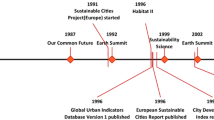Abstract
We consider the important problem of medium term forest planning with an integrated approach considering both harvesting and road construction decisions in the presence of uncertainty modeled as a multi-stage problem. We give strengthening methods that enable the solution of problems with many more scenarios than previously reported in the literature. Furthermore, we demonstrate that a scenario-based decomposition method (Progressive Hedging) is competitive with direct solution of the extensive form, even on a serial computer. Computational results based on a real-world example are presented.



Similar content being viewed by others
References
Alonso-Ayuso, A., Escudero, L., & Ortuno, M. (2003). BFC, a branch-and-fix coordination algorithmic framework for solving some types of stochastic pure and mixed 0–1 programs. European Journal of Operational Research, 151(3), 503–519.
Andalaft, N., Andalaft, P., Guignard, M., Magendzo, A., Wainer, A., & Weintraub, A. (2003). A problem of forest harvesting and road building solved through model strengthening and Lagrangian relaxation. Operations Research, 51(4), 613–628.
Caroe, C. C., & Schultz, R. (1999). Dual decomposition in stochastic integer programming. Operations Research Letters, 24, 37–45.
Constantino, M., Martins, I., & Borges, J. G. (2008). A new mixed-integer programming model for harvest scheduling subject to maximum area restrictions. Operations Research, 56, 542–551.
Escudero, L. F., Garin, A., Merino, M., & Pérez, G. (2009). On BFC-MSMIP: An exact branch-and-fix coordination approach for solving multistage stochastic mixed 0–1 problems. TOP, 17, 96–122.
Frisk, M., Karlsson, J., & Rönnqvist, M. (2006). RoadOpt: A decision support system for road upgrading in forestry. Scandinavian Journal of Forest Research, 21(Suppl. 7), 5–15.
Goycoolea, M., Murray, A. T., Barahona, F., Epstein, R., & Weintraub, A. (2005). Harvest scheduling subject to maximum area restrictions: Exploring exact approaches. Operations Research, 53(3), 490–500.
Goycoolea, M., Murray, A., Vielma, J. P., & Weintraub, A. (2009). Evaluating approaches for solving the area restriction model in harvest scheduling. Forest Science, 55(2), 149–165.
Guglielmo, L., & Sen, S. (2004). A branch-and-price algorithm for multistage stochastic integer programming with application to stochastic batch-sizing problems. Management Science, 50(6), 786–796.
Guignard, M., Ryu, C., & Spielberg, K. (1994). Model tightening for integrated timber harvest and transportation planning. Proceedings International Symposium Systems Analysis Management Decisions Forestry, Valdivia, Chile, (pp. 364–369).
Hof, J., & Pickens, J. (1991). Chance-constrained and chance-maximizing mathematical programs in renewable resource management. Forest Science, 7(18), 308–325.
Jones, J. G., Hyde, J. F. C., III, & Meacham, M. L. (1986). Four analytical approaches for integrating land management and transportation planning on forest lands (p. 33). Research Paper INT-361. Ogden, UT: U. S. Department of Agriculture, Forest Service, Intermountain Research Station.
Kirby, M. W., Hager, W., & Wong, P. (1986). Simultaneous planning of wildland transportation alternatives. TIMS Studies in the Management Sciences, 21, 371–387.
Martell, D., Gunn, E., & Weintraub, A. (1998). Forest management challenges for operational researchers. European Journal of Operational Research, 104, 1–17.
Martell, D. (2007). Forest fire management: Current practices and new challenges for operational researchers. In A. Weintraub, C. R. Trond Bjorndal, R. Epstein, & J. Miranda (Eds.), Handbook of Operations Research in Natural Resources. New York, NY: Springer Science+Business Media.
McNaughton, A. J., & Ryan, D. (2008). Adjacency branches used to optimize forest harvesting subject to area restrictions on clearfell. Forest Science, 4(13), 442–454.
Murray, A. T., & Church, R. L. (1995). Heuristic solution approaches to operational forest planning problems. OR-Spektrum, 17, 193–203.
Quinteros, M., Alonso, A., Escudero, L., Guignard, M., & Weintraub, A. (2009). Forestry management under uncertainty. Annals of Operations Research, 190, 1572–9338.
Richards, W., & Gunn, A. (2000). A model and Tabu search method to optimize stand harvest and road construction schedules. Forest Science, 46, 188–203.
Rockafellar, R. T., & Wets, R. J.-B. (1991). Scenario and policy aggregation in optimization under uncertainty. Mathematics of Operations Research, 16, 119–147.
Römisch, A., & Schultz, R. (2001). Multistage stochastic integer programs: An Introduction. In M. Grötschel, S. Krumke, & J. Rambau (Eds.), Online Optimization of Large Scale Systems (pp. 581–600). Berlin: Springer.
Watson, J. P., & Woodruff, D. L. (2010). Progressive hedging innovations for a class of stochastic mixed-integer resource allocation problems. Computational Management Science, 8(4), 355–370.
Watson, J. P., Hart, W., & Woodruff, D. L. (2012). PySP: Modeling and solving stochastic programs in python. Mathematical Programming Computation, 4(2), 109–149.
Weintraub, A. & Wets, R.J.-B. Harvesting management: Generating wood-prices scenarios. Technical Report (2013). Santiago: Systemas Complejos en Ingeneria, Universidad de Chile.
Weintraub, A., & Navon, D. (1976). A forest management planning model integrating sylvicultural and transportation activities. Management Science, 22(12), 1299–1309.
Weintraub, A., & Vera, J. (1991). A cutting plane approach for chance constrained linear programs. Operations Research, 39(5), 776–785.
Weintraub, A., Jones, G. J., Magendzo, A., Meacham, M. L., & Kirby, M. W. (1994). A heuristic system to solve mixed integer forest planning models. Operations Research, 42, 1010–1024.
Weintraub, A., Jones, G. J., Magendzo, A., & Malchuk, D. (1995). Heuristic procedures for solving mixed-integer harvest scheduling-transportation planning models. Canadian Journal Forest Research, 25, 1618–1626.
Wets, R. (1975). On the relation between stochastic and deterministic optimization. In A. Bensoussan & J.L. Lions, (Eds.), Control theory, numerical methods and computer systems modelling, Lecture notes in economics and mathematical systems, vol. 107 (pp. 350–361). Berlin: Springer
Acknowledgments
The comments of two anonymous referees greatly improved the exposition. This research was financed in part by the Complex Engineering Systems Institute (ICM:P-05-004-F, CONICYT: FBO16), and by Fondecyt under Grant 1120318.
Author information
Authors and Affiliations
Corresponding author
Rights and permissions
About this article
Cite this article
Veliz, F.B., Watson, JP., Weintraub, A. et al. Stochastic optimization models in forest planning: a progressive hedging solution approach. Ann Oper Res 232, 259–274 (2015). https://doi.org/10.1007/s10479-014-1608-4
Published:
Issue Date:
DOI: https://doi.org/10.1007/s10479-014-1608-4




